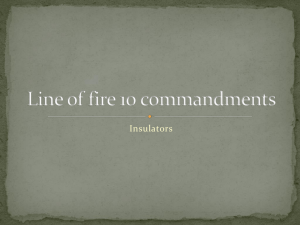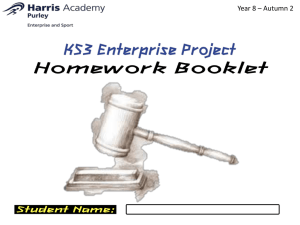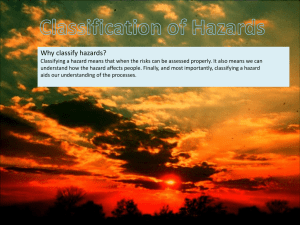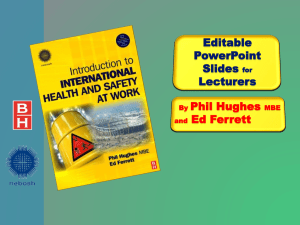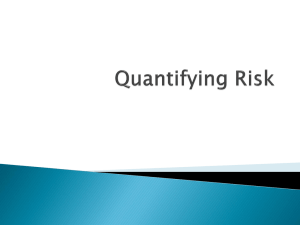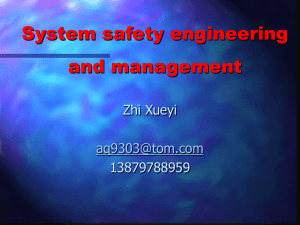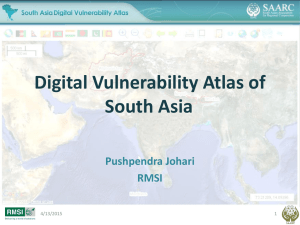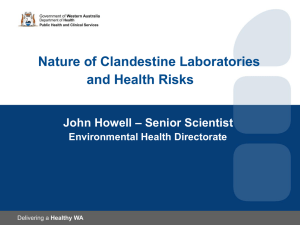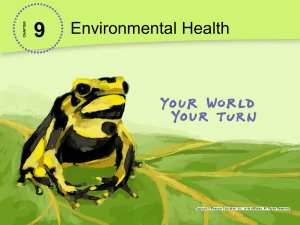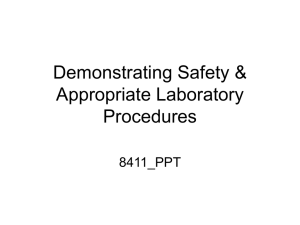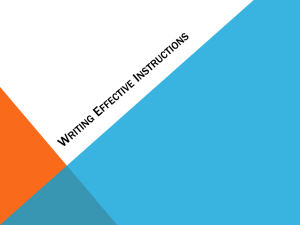Line of fire 10 commandments
advertisement
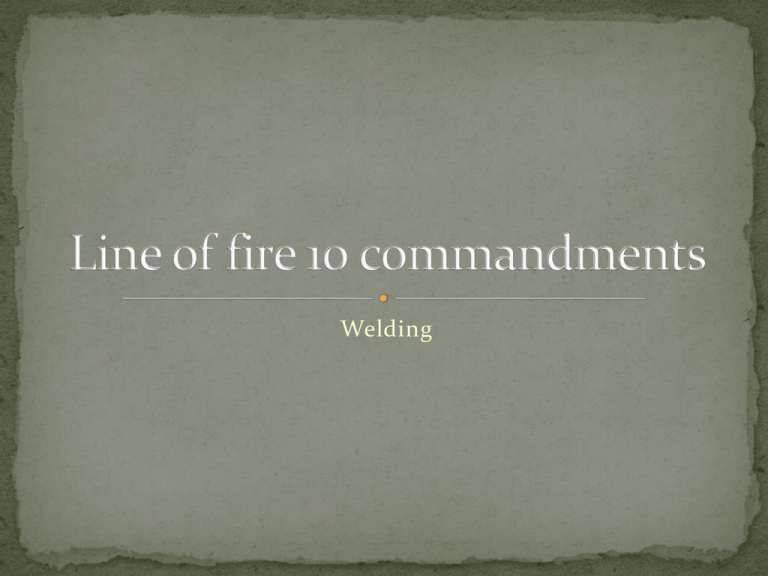
Welding I. Never put your body or body parts in the path of a moving object. II. Never position yourself under a suspended load. III. Use the proper tools to keep your hands and body out of the line of fire. IV. Never use Personal Protective Equipment as your only protection from line of fire hazards. V. Never anticipate that you can move your hands or body out of the line of fire in a timely manner. VI. Ensure the task you are performing is not putting a co-worker in the line of fire. VII. Consider the line of fire hazards from tools that may slip or fall. VIII. Always identify, eliminate or control line of fire hazards that may be created by a co-worker. IX. Know and stay clear of line of fire hazards created by other work being performed in your area. X. Never place yourself in the path of any potential release of stored energy. I. Never put your body or body parts in the path of a moving object. Never stand directly behind or in front of moving vehicles i.e. trucks, forklifts, cranes and aerial lifts. Always position yourself where you can maintain visible contact with the driver. II. Never position yourself under a suspended load. Stand clear of loads/material being used, rotating or being handle by other employees. III. Use the proper tools to keep your hands and body out of the line of fire. Always use the right tool for the job. The grinder handle and guard are necessary for safe use. IV. Never use Personal Protective Equipment as your only protection from line of fire hazards. PPE should be used as the last line of defense against a hazard. Always control or eliminate the hazard. V. Never anticipate that you can move your hands or body out of the line of fire in a timely manner. Keep your body and hands clear of line of fire hazards. Your not as fast as you think! VI. Ensure the task you are performing is not putting a co-worker in the line of fire. Be aware of your surroundings and the location of your coworkers. VII. Consider the line of fire hazards from tools that may slip or fall. Stand clear and be aware of tools that may cause sparks. VIII. Always identify, eliminate or control line of fire hazards that may be created by a coworker. Employee creating sparks while grinding. Be aware of what your coworkers are doing and identify possible line of fire hazards. IX. Know and stay clear of line of fire hazards created by other work being performed in your area. Be aware and communicate with other crafts who maybe working in the area. X. Never place yourself in the path of any potential release of stored energy. Notice employee is not wearing his proper PPE for this task. Good communication and planning before the start of the job can help identify possible hazards. Many thanks to the 2011 TOCAS Line of Fire Sub-Team members for their contributions: Alan Olivas (Kelly Services – Sub-Team Leader) Mike Scarborough (Miken Specialties– Team Sponsor) Jay Tracy (The Dow Chemical Company) Jacob Ermel (The Dow Chemical Company) Kendel Kandler (ICS) Sharon Todd (Skyline) Keith Green (Miken Specialties) Dave Turner (RSC Rental) James Anderson (UEI) Tony Lewis (UEI) Zack Raasch (Brevard) Paul Slovarp (D-Electric)
